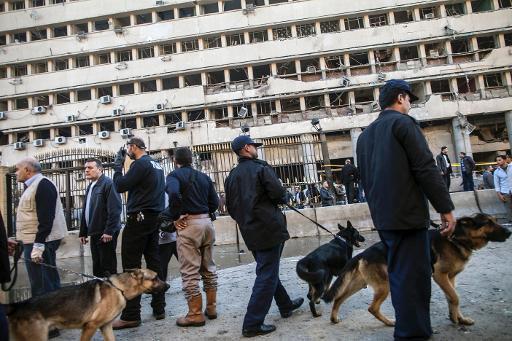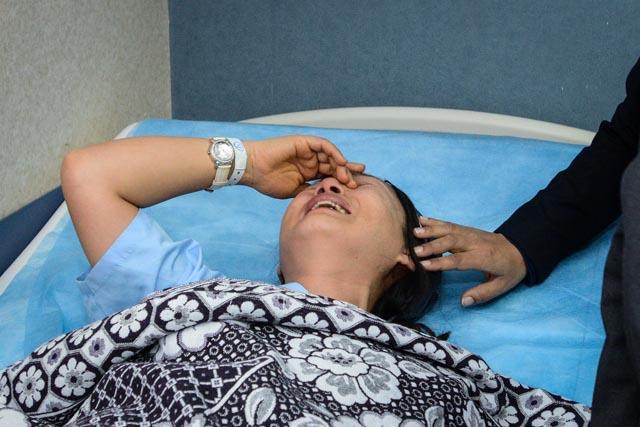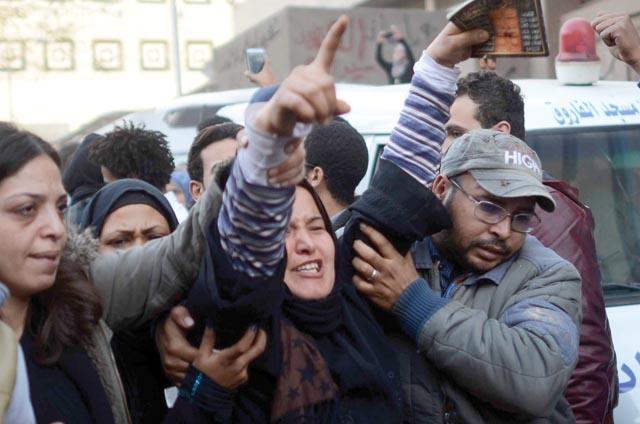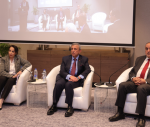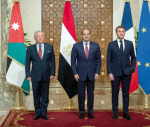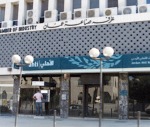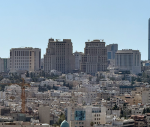CAIRO — The brazen daylight assassination of a police general in Cairo underscores the growing insecurity in Egypt, as it awaits an announcement from its army chief to run for the presidency.
Ansar Beit Al Maqdis, an Al Qaeda-inspired group from the restive Sinai Peninsula, said it shot dead General Mohamed Saeed outside his home in western Cairo on Tuesday, and threatened more such attacks.
The killing came a day after Egypt’s top brass backed Field Marshal Abdel Fattah Al Sisi to run for the presidency, which if he pitches for is expected to easily win.
Sisi, 59, has said he would stand for the election to be held by mid-April if there was “popular demand”.
“Vengeance is coming,” Ansar Beit Al Maqdis said in a statement addressing Sisi and Interior Minister Mohamed Ibrahim.
In just over six months, Sisi has won accolades from a vast section of Egyptians for ousting Islamist president Mohamed Morsi and crushing his Muslim Brotherhood.
Morsi, Egypt’s first elected civilian president, fell after mass protests following one turbulent year in office.
A victory for Sisi would keep alive a tradition of presidents drawn from the military, but the road ahead is expected to be riddled with political turmoil and security challenges.
The Brotherhood, now banned as a “terrorist” group, criticised the army’s backing for Sisi.
“Now it is evident that what happened on July 3 was a full-fledged military coup,” it said, referring to the day of Morsi’s ouster.
“The military council, whose main mission is to protect and not rule, mandated its chief, the leader of the coup, to run for the presidency, so the military can dominate political life in Egypt when it should remain far away from politics.”
General Saeed’s killing and later that of a policeman outside a Cairo church highlights the precarious security situation since the 2011 overthrow of veteran strongman Hosni Mubarak, with the violence having only worsened since Morsi’s removal.
On Wednesday, masked gunmen on motorbike shot dead a policeman in the Nile Delta province of Sharkiya, security officials said.
At least 1,400 people, mostly Morsi supporters, have been killed in a relentless crackdown on Islamists, according to Amnesty International, while scores of policemen and soldiers have fallen to militant attacks.
As part the crackdown, 20 Al Jazeera staff — including award-winning Australian journalist Peter Greste, two Britons and a Dutch woman — were referred to trial on Wednesday.
The authorities have been incensed by the pan-Arab network’s coverage of their campaign against the Islamists.
The foreigners were accused of “airing false news” among other charges, while the remaining 16 — all Egyptians — were charged with belonging to a “terrorist” group, the prosecution said.
Since Thursday alone, at least 14 policemen have been killed across Egypt, while nine soldiers were killed in Sinai.
Five of the soldiers were killed when their helicopter was shot down with a missile which Ansar Beit Al Maqdis said its fighters fired. The military acknowledged the aircraft was downed.
The media condemned Saeed’s killing.
“Terrorism assassinates general,” declared the front-page headline of state-run Al Gomhuria, while Al Akhbar said “Bullet of treachery assassinates general”.
Sisi’s supporters feel he is the only person capable of restoring stability in Egypt.
The interim leaders have even altered a road map for democratic transition by announcing the presidential election will be held before a legislative vote.
“I would have preferred a presidential election comprising civilian candidates to install a civilian democracy,” said Alfred Raouf of the liberal Al Dostour party.
“But I can understand that people want Sisi to be candidate, as given their security fears they want a strong man” to head the country.
Ansar Beit Al Maqdis vowed to target “the economic interests of the regime, which comprises the gas pipeline to Jordan that sends billions of Egyptian pounds in the pockets of Sisi and his generals”.
It said it would “widen its economic war on [the] traitor clique until it defeats it”.
The Brotherhood, which renounced violence decades ago, has condemned these attacks, but that has not stopped it from being declared a terrorist organisation.
Its blacklisting makes promotion of the group either verbally or in writing punishable by lengthy prison sentences.



